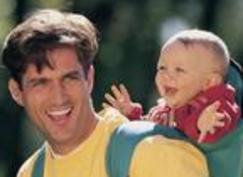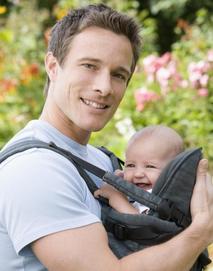Myth or Science?
One of the definitions of a myth is “a widely held but mistaken belief.”
Many American infant-rearing beliefs are myths.
#1. The best way to reduce the risk of SIDS (Sudden Infant Death Syndrome) is to have babies sleep in their own beds in their own rooms. Myth or Science?
Comments: The AAP (American Academy of Pediatrics) states that “The risk of SIDS has been shown to be reduced when the infant sleeps in the same room as the mother.” The Indiana Perinatal Network tells parents: “Experts agree that the safest place for your baby to sleep is in your room within arm’s reach.” I highly recommend researcher Dr. James McKenna’s book: “Sleeping with your Baby: A Parent’s Guide to Safe Cosleeping.” It decribes the many advantages of babies sleeping within arm’s reach, including increased chances of survival. It also lists guidelines for safe infant sleep. (It is very important to be aware of the conditions necessary for safe infant sleep, whether babies are sleeping in cribs, parents' beds, or a bassinet. Infants should never sleep on a couch, in a recliner, in an armchair or in a waterbed, with or without another person.)
Answer: Statement #1 is a MYTH.
#2. Babies should spend at least 15 minutes a day crying, so as to exercise their lungs. Myth or Science?
Comments: One of the sources of this advice was a doctor who wrote a book in 1894 in which he recommended that babies be left alone to cry for 15 to 30 minutes a day because crying was “the baby’s exercise” and was “necessary for the health.” He didn’t see a problem with babies screaming and getting red in the face during this “exercise.” There has never been any scientific evidence whatsoever to support this advice. On the contrary: brain-imaging studies have shown that “prolonged, uncomforted crying” is actually damaging to babies’ brains and anti-anxiety systems, leaving them at risk for depression, anxiety and many other problems. Psychologist Lee Salk puts the issue in perspective: “If crying is good for the lungs, then bleeding is good for the veins.” Blood-letting WAS done for centuries to cure all kinds of health problems, but it is now considered an appalling, barbaric practice. So, too, should we look at the practice of abandoning babies to cry alone and uncomforted.
Answer: Statement #2 is a MYTH.
© McCarthy 2011
To find out, take this quiz!
Step 1. Read each numbered statement below and on the next page.
(There are 7 questions.)
Step 2. Note whether you think each statement is a myth or is
based on science.
Step 3. Read the comments and the answer that follows.
If you do not wish to see the answer till you've read the comments,
scroll slowly. However, you may want to change your answer
after reading the comments.
Step 4. Read the comments that follow the quiz.
#3. Babies need lots of nurturing touch (being held, rocked, carried, played with and given skin-to-skin contact and massages) for their brains and bodies to grow well, to have good physical health, and to feel secure and loved. Myth or Science?
Comments: Research findings from many fields support the importance of touch and motion for physical and psychological health. Studies of the brain, of human development in many cultures and of our closest relatives—primates such as chimpanzees and gorillas—show the importance of positive, nurturing touch for optimum physical, emotional, intellectual and social development.
Answer: Statement #3 is SCIENCE.
Parenting for a Caring World
"Secure Babies, Strong Children, Successful Adults"
™
™
Your Resource for CARE Parenting
Conscious, Attuned, Responsive and Empathetic
Do you know which beliefs are myths and which are based on scientific research findings?




